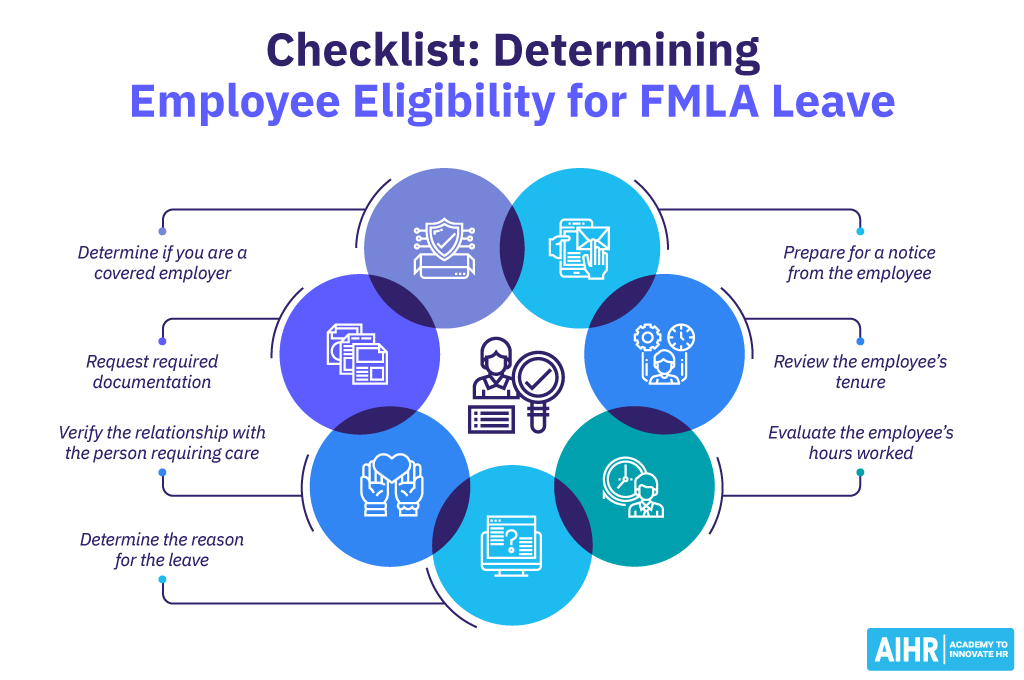FMLA Paperwork Required for Paid Leave? Here's What to Know

Understanding FMLA paperwork and its importance can seem daunting when you're applying for paid leave. Whether it's for medical reasons, to bond with a new child, or to deal with a family member's serious health condition, knowing what documents you need and how to submit them can make the process much smoother. In this post, we'll delve into the intricacies of FMLA (Family and Medical Leave Act) paperwork, providing a step-by-step guide and tips to help you navigate through this often complex administrative process.
The Basics of FMLA

Before we get into the paperwork, let's briefly touch on what FMLA actually entails:
- It provides up to 12 weeks of unpaid, job-protected leave in a 12-month period.
- This applies to employees who work for companies with 50 or more employees within a 75-mile radius of their work site.
- Reasons for leave can include childbirth, adoption, care for a family member with a serious health condition, or for your own health condition.
Documents You'll Need for FMLA Leave


Certification Forms

- Medical Certification (WH-380-E or WH-380-F): If the leave is due to your own health condition or to care for a family member, a healthcare provider must fill out a certification form detailing the condition, treatment schedule, and estimated duration of the leave.
Notice of Leave

- Foreseeable Leave: If you can predict when you need to take leave (like a scheduled surgery), you're required to give your employer a 30-day notice.
- Unforeseen Leave: In case of an emergency, notify your employer as soon as practicable.
Designation Notice (Form WH-382)

- This form, which must be filled out by your employer, indicates whether your leave request has been approved or denied, how much leave you are entitled to, and whether it will be counted against your FMLA entitlement.
💡 Note: While the WH-380 forms are standard, some employers might have their own forms or ask for additional documentation.
Steps to Apply for FMLA Leave

1. Inform Your Employer

- Once you’re aware that you’ll need FMLA leave, inform your HR department or immediate supervisor.
- Provide details about the reason for leave and the expected timeframe.
2. Gather and Submit Medical Documentation

- Get the appropriate certification form from your employer or download it from the Department of Labor website.
- Take this form to your healthcare provider or the family member’s provider to complete.
- Return the completed form to your employer as soon as possible.
3. Await the Designation Notice

- Your employer will review the medical certification.
- They will send you the Designation Notice indicating approval or denial.
4. Follow Up on Any Additional Requests

- If further information or documentation is needed, your employer will communicate this through the WH-382 form or another company-specific form.
- Respond promptly to avoid delays in leave approval.
5. Track Your Leave

- Keep track of the amount of FMLA leave you’ve taken to ensure you’re within the 12-week limit.
- Communicate with HR or your manager about any changes in your leave status.
Common Pitfalls to Avoid

- Late Submission of Paperwork: This can delay your leave or result in denial. Always submit forms as soon as possible.
- Incomplete Information: Ensure all sections of the forms are filled out, especially the medical certification.
- Not Understanding Company Policies: FMLA law sets the minimum requirements, but your company might have more generous policies. Always check with your HR.
Frequently Asked Questions

Can I take intermittent FMLA leave?

+
Yes, under certain conditions, you can take leave intermittently for events like medical appointments or chronic illness treatments.
What happens if my employer does not grant FMLA leave?
+
If you believe your employer has violated FMLA, you can file a complaint with the Wage and Hour Division of the Department of Labor or consult with an employment attorney.
Do I have to inform my employer of my FMLA need in advance?
+Yes, for foreseeable events, you must give at least 30 days’ notice, or as soon as possible for unexpected situations.
Can FMLA leave be paid?
+FMLA itself is unpaid, but you might be able to use vacation, sick time, or disability leave concurrently for pay, or your employer might offer paid leave policies.
Navigating FMLA paperwork can seem like a labyrinth, but armed with the right information and a clear understanding of the steps, you’re better positioned to ensure your leave is approved without undue stress. Remember to communicate effectively with your employer, understand their policies, and keep diligent records to make the process as seamless as possible. Whether you’re taking time for your own health or to care for a family member, these guidelines will help you make the most of the protections the FMLA affords you.



